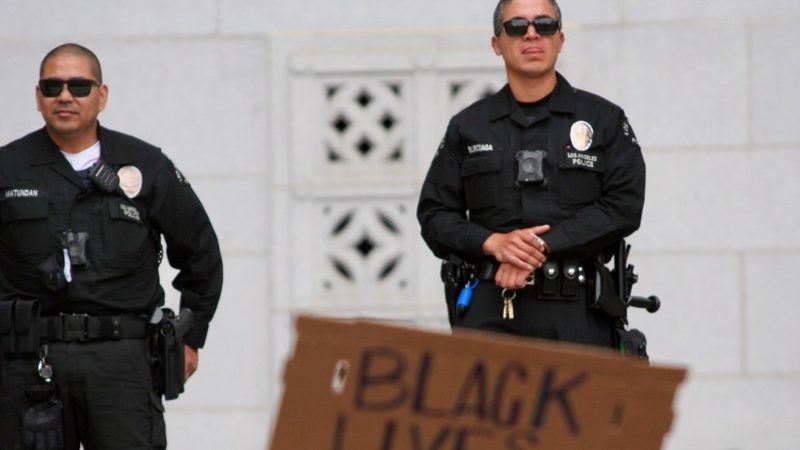California Police Unions Once Again Side With Bad Cops To Kill a Good Bill
Law enforcement lobby holds off bill that would decertify officers who are guilty of misconduct.

California is one of only five states that does not have a formal process for decertifying bad cops to keep them from finding patrol work. And it looks like it's going to stay that way.
In the middle of a massive push for policing reforms in America, law enforcement unions have defeated S.B. 731, a California bill that would have created a commission to hear cases of cops who have engaged in misconduct and determine whether they'd be stripped of their certifications.
Introduced for the first time in 2019 by state Sen. Steven Bradford (D-Gardena), S.B. 731 passed the California Senate unanimously but didn't make it to the California Assembly floor before the legislative session ended Tuesday.
The Associated Press notes that law enforcement unions scrambled to lobby lawmakers to stop Bradford's bill from progressing without numerous changes. A representative from police unions in Los Angeles and San Francisco told the A.P. the bill was "deeply flawed."
Several law enforcement unions in the state say they want a process in place to decertify bad cops. They even made a web page to insist that they support things like a database of officers who have been fired for misconduct, and "a fair, reasonable and workable decertification process." But they object to Bradford's commission because only three of the nine members would be police officers. Four of the other members would be members of nonprofit or academic institutions and community-based organizations that have experience on "issues related to police misconduct." One member would be a citizen who has been a survivor of police misconduct (or a relative of somebody who did not survive misconduct). And one would be an attorney with "experience involving oversight of police officers." Police unions determined that this newly created board would be, in the Associated Press's words, "inherently biased against officers."
Why would we assume that people with experience in issues related to police misconduct would be inherently biased against the police officers their commission reviews? Does that also mean the officers on the commission would be biased in favor of the cops?
The cops and the unions want too much control over what is and is not considered "misconduct." Time and again, Americans have seen these organizations use their power to defend and make excuses for terrible police behavior. Their ideal form of "due process" for police officers facing misconduct allegations is an ostensibly civilian commission that police control.
The Associated Press notes that other policing reforms pushed by lawmakers also failed at the end of the session. Lawmakers were not able to expand the types of police misconduct records that could be made public, to require that police intervene when they see fellow officers using inappropriate levels of force, or to limit the use of tear gas and rubber bullets against protesters. Those proposals all failed.
But it wasn't a complete loss. A bill to ban chokeholds and neck restraints passed, along with a bill to require the California Attorney General's office to investigate whenever a police officer kills an unarmed civilian.
Nevertheless, the defeat of Bradford's bill shows exactly how powerful police unions remain even with the citizenry generally in agreement that misconduct by law enforcement too often goes unpunished.


Show Comments (64)